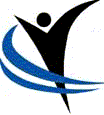 Obviously, most of you reading the blog are runners, so you may need to forward this link to your non-running spouse or friends. If you have been enjoying your running you also might enjoy reading about how to improve or just make it a better experience. There are countless running books available for purchase, but here are three that never fail to receive high marks. You can look at the reviews on Amazon and see for yourself.
Obviously, most of you reading the blog are runners, so you may need to forward this link to your non-running spouse or friends. If you have been enjoying your running you also might enjoy reading about how to improve or just make it a better experience. There are countless running books available for purchase, but here are three that never fail to receive high marks. You can look at the reviews on Amazon and see for yourself. The first book is Advanced Marathoning, by Pete Pfitzinger and Scott Douglas. The title might scare you off, but this book is not reserved just for fast or excessively experienced runners. It is designed for those who would like a solid and detailed plan to help them run their fastest marathon. A friend recommended this book to me, and the Amazon feedback echo's his high praise. As far as marathon training goes, this is suppose to be one of the best available.
The second book which also gets great feedback is The Complete Book of Running for Women: Everything You Need to Know About Training, Nutrition, Injury Prevention and Much More, by Claire Kowalchik. If the title is any indication, this book is long (only kidding). I do not know as much about this book, but it is supposed to be an outstanding resource. 39 customer reviews give it an average of a 5-star rating.
One last book which I honestly know nothing about is The Non-Runners Marathon Trainer, by David A. Whitsett, Tanjala Jo Kole, anf Forrest A Dolgener. So why did I put this on the list? If you are like me you really enjoy running, and probably have someone you would like to encourage to do the same. This book is a great tool to help get a friend off the couch and on the roads. It has more reviews then any other marathon book I looked up, and still rates 5-stars.
 I will be out of town, but would still like to use the blog in case others are planning a run. I put down an 8:00 a.m. start, but feel free to set up any run that works for you.
I will be out of town, but would still like to use the blog in case others are planning a run. I put down an 8:00 a.m. start, but feel free to set up any run that works for you.













 Kinnie knows of two used road bikes for sale. She asked that I pass this on to anyone who might be interested:
Kinnie knows of two used road bikes for sale. She asked that I pass this on to anyone who might be interested:


 Recovery from the marathon will depend on many things. Each person is different. How much mileage you did in your training, your age, how well you hydrated in the race, race weather and course, how flexible you are. There are many different factors and how you recover will be different for each person. As we have said all along, you must listen to your body and it will help guide you.
Recovery from the marathon will depend on many things. Each person is different. How much mileage you did in your training, your age, how well you hydrated in the race, race weather and course, how flexible you are. There are many different factors and how you recover will be different for each person. As we have said all along, you must listen to your body and it will help guide you.











